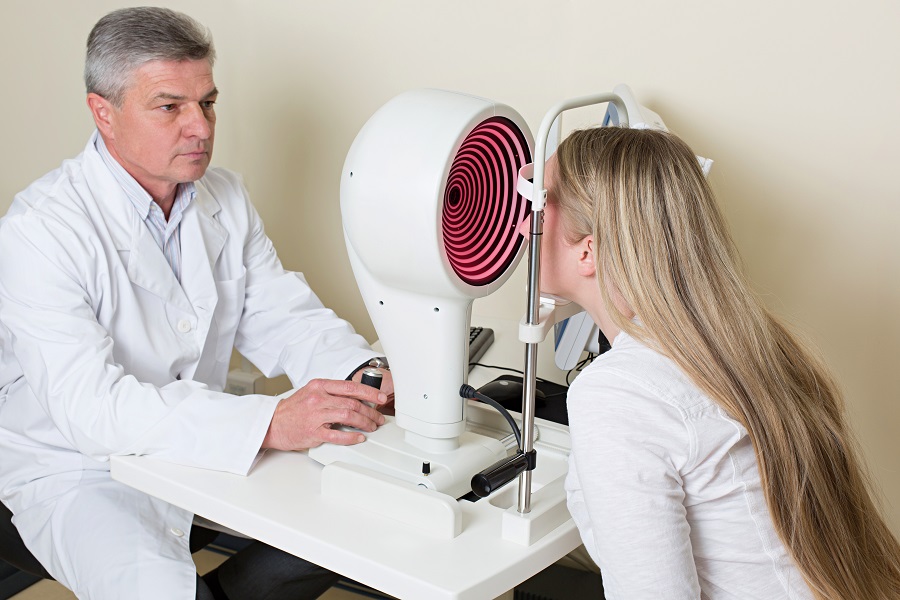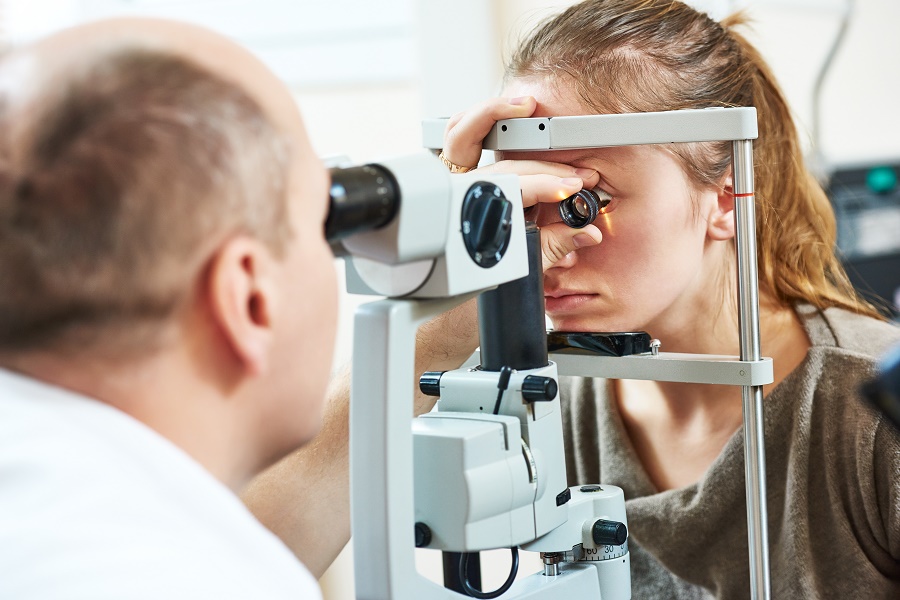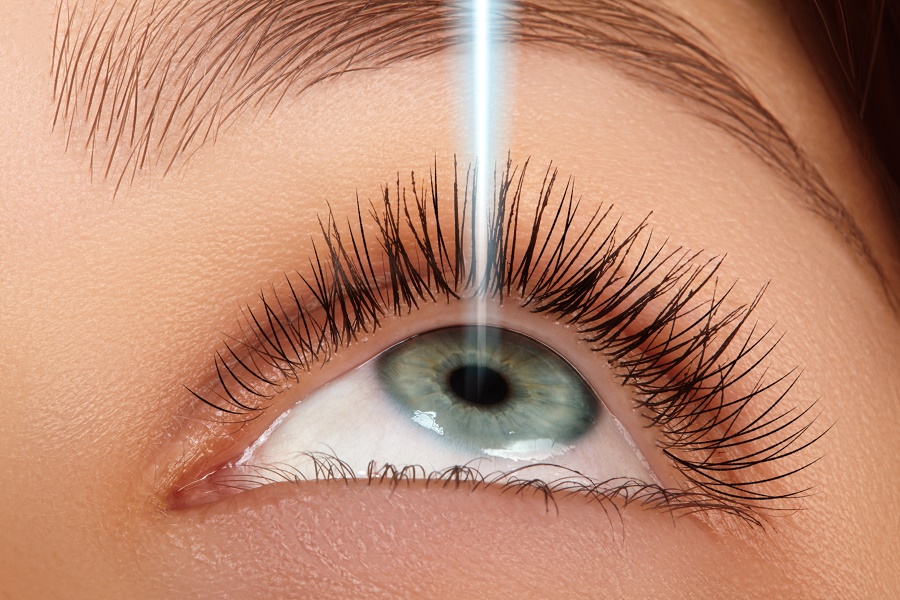
Tips for Fast and Smooth Recovery from the Best Eye Surgeon in Orange County and Los Angeles
Laser eye surgery is a typical procedure performed throughout California including Los Angeles and Orange County. In fact, roughly half a million procedures are done every year! As such, it isn’t unusual for the best eye surgeons in Orange County to complete thousands of procedures in a year.
Dr. Ferzaad Moosa
Our resident doctor here at Excel Laser Vision Institute has earned professional reputation in the field of Lasik surgery. He has handled various eye cases and has the proven track record to provide the best laser eye surgery in Los Angeles and all of California.
The discussion below aims to provide Lasik surgery patients with proven tips to protect their eyes after the procedure. Learn from the words of the best eye surgeon in Orange County, and discover more ways to better your eye condition!
Tried and Tested Recovery Measures to Complement the Best Laser Eye Surgery
The best laser eye surgery is accomplished without complications. However, how you take care of yourself post-op plays a significant role in helping you recover faster and without issue. Be sure to follow these important tips to help ensure you experience a smooth recovery.
- Keep Your Hands Away from Your Eyes
Many LASIK patients report slight eye irritation after the procedure. This is normal as your eyes are adjusting to the effects of LASIK surgery. Make sure that you keep you avoid touching your eyes though. In particular, never scratch your eyes while they are recovering. Scratching your eyes may damage the lens and reverse the effects of the procedure.
- Take a Relaxing Bath Instead of a Long Shower
If you feel a little sticky or grimy in the evening, it’s natural to want to take a nice warm shower. This can be a bad idea, however, if it has only been a few hours after your LASIK surgery. This is because water droplets from your shower may contain bacteria, which may cause an infection in the eye that underwent surgery. If you want to clean yourself after a long day, it’s a better idea to draw yourself a warm bath in the tub instead. Also, a soak in the tub is way more relaxing than a shower! - Wear Sunglasses with UV Protection
For the first few days immediately following the laser eye surgery, your eyes will be quite sensitive to the light. In fact, intense bursts of light may cause damage to the lens of the eye that underwent LASIK surgery. If you need to leave your home during the day in the middle of your recovery period, make sure you wear sunglasses that are rated for UV protection to help shield your eyes from intense sunlight. - See Your LASIK Surgeon
Your surgeon will require a consultation few days after the procedure. Don’t forget to see your doctor! This follow-up is a standard as it will help your surgeon assess how well your eye is healing. He may also check if there are any complications developing so that he can correct them before they get worse.
Let’s Talk
Even if you get the best laser eye surgery in Los Angeles and all of California, all of these will be for naught if you do not follow these simple tips. Make sure that you follow these recommendations to avoid any eye complications.
Do you have questions about your eyes? Schedule a consultation now!

Before Your Laser Eye Surgery, Ask The Important Questions
If you’re considering getting laser eye surgery Orange County, you should know that the procedure has been done thousands of times now, and it’s nothing of which to be frightened. Medical science has advanced to the point where it’s quick and efficient, and the success rate is very high. You’re going to want to be positive that you’re getting the right surgeon for the job, though. To that end, there are some questions that you’ll want to ask your surgeon beforehand.
What Should I Be Asking My Surgeon?
Inquiring how many procedures a surgeon has done is a great place to start. You want someone with plenty of experience. Ask them about their complication rate, and how it compares to the national average. You can ask about the availability of the billing department, and whether they can explain and break down all the costs involved in the procedure. Ask if they charge extra for an enhancement, which is a follow-up to the procedure if the outcome of the original vision correction surgery is not entirely satisfactory. If they do charge extra, how much of a price break can you expect? And finally, if they don’t charge extra for an enhancement, then what is the cutoff date after the initial procedure for addressing any complications that might occur?
Other Possible Questions
You might also ask if the surgeon performs the procedure at their center, or if any travel will be required. You can ask about outcome statistics, and whether they’re in line with the national average. Ask about whether the center has ever had an outbreak of eye infections, and if so, how long ago it was and what caused it.
You should feel happy and satisfied with the answers you get to all of these questions. A surgeon should not act like it’s a hassle to address any concerns you might have. On the contrary, a responsible surgeon should be glad that you’re taking steps to make sure that they’re the optimal choice for the job. If they’re reluctant to go over your questions, if they seem annoyed or they won’t give you a straight answer about anything, then you might want to consider looking elsewhere.

Four Questions to Ask LASIK Surgeons Before Committing to Surgery
LASIK surgery is one of the best ways to correct refractive errors like nearsightedness, farsightedness, and astigmatism. The procedure is completed by experienced LASIK surgeons. In Los Angeles and Orange County, for one, surgeons are well-trained and experienced in using a special laser that allows them to reshape the lens in the affected eye. The procedure is incredibly safe and highly effective.
Of course, the fact that a laser is involved can make some patients feel uneasy. This is why it’s best to discuss the procedure with various Lasik surgeons in Orange County and Los Angeles. To help you assess the capabilities of Lasik surgeons in Los Angeles and all of California, here are four important questions you should ask them.
How many LASIK surgeries have you performed?
When it comes to surgical procedures, knowing that your surgeon has done this numerous times before can help put you at ease. Similarly, LASIK surgeons can easily lean on their experience to help you achieve the best possible result. Don’t hesitate to ask your surgeon to provide you with a ballpark figure of how many procedures he has performed since he started offering LASIK surgery services.
Should I avoid certain medication before the procedure?
Some types of medication may interfere with the effectiveness of the sedative used during the procedure. Others may also increase the pressure in your eye or cause a less ideal condition for the procedure. Make sure you inform your LASIK surgeon about any medication, both OTC and prescription medicine, you may be taking. Your doctor can help identify which ones you may need to stop taking a week before the procedure.
Where will the procedure be done?
LASIK surgeons will often perform the procedure wherever the LASIK machine is located (the machines are quite large and heavy). Make sure you ask where the procedure will be conducted as it may be performed at a different location than your surgeon’s office. It may be a good idea to see the vision center where the procedure will take place a few days before you undergo LASIK surgery.
What kind of results should I be expecting?
Ideally, your LASIK surgeon will be honest with you and set your expectations about the kind of results the procedure will accomplish. LASIK surgery is used to treat a wide range of refractive errors, but the severity of the error may impact the results of the procedure. If you have a severe refractive error, your surgeon may need to repeat the procedure several years down the road.
Finding the Best Lasik Surgeon in Orange County and All of California
Here at Excel Laser Vision Institute, our resident surgeon, Dr. Ferzaad Moosa, is a Harvard-trained refractive specialist and board-certified Ophthalmologist who has both experience and expertise to perform Lasik surgeries. If you are looking for a Lasik surgeon to entrust your eye care needs with, Dr. Moosa can definitely answer your questions and provide you with the solutions you need.
Schedule a free consultation with our resident surgeon today, and get the answers to all your questions!

Choose Only The Best For LASIK Eye Surgery
If you’ve considered LASIK eye surgery Orange County, then you probably already know about the possible benefits that this procedure offers to those with vision problems. LASIK is an ideal solution to your eyesight woes, and it’s very safe, too. The only question remaining is how to select the surgeon who’s right for you. Think about these things as you embark on your search.
Board Certification and Licensing
You want to be positive that your surgeon is qualified, and that means making sure they’re licensed and certified. If you want to check on the status of your surgeon’s license, you can do so through the National Practitioners Data Bank. You can also look at the website for the state licensing board. As far as board certification, what you’re looking for is that an entity recognized by the American Board of Medical Specialties has given certification to your surgeon for them to practice their specialty. Your surgeon should have an American Board of Ophthalmology certification, and they should also have an American College of Surgeons membership. The ACS is a governing body that upholds ethical conduct standards for its members, all of whom must be board certified. Look for the designation “FACS” after their name to see if your surgeon is a member in good standing.
Advertisements and Referrals
It’s nice when you see your surgeon widely advertised. Television, radio, and internet ads mean that your refractive surgery center is trying to actively engage with the community. However, you should not base your primary criterion for selecting a surgeon based on reasonable prices mentioned in ads, or anything of a similar nature. The price point is an excellent place to start, but make sure to ask your surgeon whatever questions you have until you are satisfied with their experience and qualifications. To that end, you should get a referral from your regular eye care practitioner. Inform your doctor that you’re looking for the best LASIK surgeon in the area and the one with the best reputation.
Remember, it’s great to hear you’re going to get a reasonable price on your LASIK surgery, but it’s imperative that your surgeon is fully licensed and qualified. They should be willing to answer any questions you have, and they should have a sterling reputation. For the sake of your eyesight, you only want the best doing your procedure.

Cataract Surgery: Separating Fact from Fiction
Having cataracts is a common condition that can affect almost anyone. For most cases, a cataract surgery is not required. As long as you don’t leave it untreated, you won’t go blind from this eye condition.
At its early stages, the symptoms of cataract can be reduced by using brighter lighting, anti-glare sunglasses, or magnifying lens. However, when vision loss has reached the point where it interferes with your daily activities, the cataract needs to be surgically removed. This is when you need to undergo cataract surgery. In Orange County and Los Angeles, the number of people with eye problems has significantly increased. However, some people are afraid to undergo surgery because of the myths and misconceptions that surround it.
Cataract Surgery: Top 7 Myths and Misconceptions About the Condition and Its Treatment
Like most medical procedures in Orange County and Los Angeles, cataract surgery is surrounded by a lot of misconceptions. Add the myths that plague the eye condition, and it’s no wonder that a lot of patients are reluctant to undergo the operation. Here are some of the most common misconceptions about cataract and the surgery.
Myth #1: Cataract is reversible.
Fact: Cataract is not reversible.
It’s a condition that naturally develops due to age-associated changes in your eyes. Non-surgical treatments mostly work to slow down the deterioration process.
Myth #2: Eye drops can fix cataracts.
Fact: Eye drops cannot fix cataracts.
There are currently no eye drops that can fix or dissolve cataracts. More importantly, since it’s a naturally occurring condition that comes with age, there’s also no way to prevent them completely. If you want your cataracts gone, you’ll have to undergo cataract surgery.
Myth #3: Doing activities that required looking at objects at a close distance like sewing and reading worsens cataracts.
Fact: Activities that require close scrutiny do not make cataracts worse.
As mentioned in Myth #1, cataract is an age-related condition. You won’t develop the condition—or make it worse if you already have it—if you engage in activities that require close visual examination frequently.
Myth #4: Cataract surgery is dangerous.
Fact: Cataract surgery is a low-risk procedure.
While the procedure is not without risks, cataract surgery is considered as one of the safest surgical procedures in the world.
Myth #5: Cataract surgery has an extended recovery period
Fact: Patients can resume their regular activities the day after their operation.
If you decide to get cataract surgery, in Los Angeles, for instance, know that you don’t have to set aside a lot of time for recovery. You can get back to work the day after your operation. Just don’t press or rub your eyes and engage in any heavy lifting or strenuous activity for the next few weeks.
Myth #6: Most cataracts grow back post-surgery.
Fact: Patients can develop a secondary cataract post-surgery.
Surgically-removed cataracts never grow back. But, there are rare instances when a secondary cataract can develop in or near its place.
Myth #7: Only the elderly can develop cataracts.
Fact: Everyone can develop cataract; the elderly is just the most vulnerable age group.
Cataracts occur in all age groups—even infants or those under 40 sometimes have them. They are just most common on older people since they’re an age-associated condition.
Don’t let these misconceptions hold you back from getting cataract surgery.
Looking for Cataract Surgery in Orange County and Los Angeles?
Excel Laser Vision Institute has you covered! As the leading provider of laser eye surgery in Los Angeles, Orange County, and all of Southern California, we have carried out safe and successful operations for over two decades. Visit one of our clinics to learn more about us and our services.
Never take eye problems lightly. Even if you don’t have any of the tell-tale signs of cataract (clouded or dim vision, sensitivity to light, seeing “halos” around lights, etc.), it is still better to consult an expert to make sure you’re not coming down with anything serious. Remember, when it comes to your eye care needs, prevention is always better than cure!

When Considering Laser Eye Surgery, Think Carefully Before You Act
When thinking about whether to get LASIK in Orange County, there are many factors to consider. There are many possible benefits to LASIK, of course, but there also some risks involved. You’ll need to consult with a trusted surgeon first to get the specifics of what’s going on with your vision. Then, you can go over the options.
What some people are asking, though, is whether LASIK is worth it in the long run, or if glasses or contacts remain the more sensible choice. We’ll examine that chain of thought in this article.
Astigmatism, farsightedness, and nearsightedness are all annoying. Corrective eye surgery can treat all of those. It is estimated that for up to 90% of LASIK recipients, vision is significantly improved. However, there’s a chance that even after that improvement, you’ll still need to use corrective lenses like eyeglasses and contact lenses. A few years down the line, a small percentage of people require eyeglasses or contacts in certain situations. However, that’s not something LASIK can control, as things like old age and other eye diseases like cataracts and glaucoma can affect your vision.
There’s also the risks involved, which, while minor, should not be discounted. Vision loss that cannot be treated by lenses, contacts, or further surgery is rare, but not unheard of. What’s more common is severe dry eye syndrome, blurry vision, and seeing halos around bright lights. None of these are life-threatening but can be a huge pain in the butt since you can’t do anything about it.
What you should take from all of this is that LASIK is not a miracle cure. It can only help some people, and those who receive it may still need glasses, contacts, or a second surgery down the line. With all that being said, though, there are thousands of people who have been helped by LASIK in a significant way, and if you’re experiencing any of a specific range of vision problems, you might be a good candidate. The procedure is very safe, and the side effects we’ve discussed in this article only happen to a select minority.
The best thing to do, again, is to have a frank conversation with your surgeon about whether you’re a suitable candidate. If you want to have better vision, it’s more than likely that LASIK will turn out to be the best choice for you.

Are You a Good Candidate for Eye Surgery?
It’s a rare person that will go through their entire life without some degree of vision loss. If you’ve reached your early-to-mid 40s and you haven’t lost some of your ability to focus on objects which are nearer to you, then you’re in the minority. If it is occurring, you may be unable to read smaller print or do tasks where you must focus on objects in the foreground. The question asked by many at this stage is if they need eye surgery from the best LASIK surgeons in Los Angeles and if you’ve reached this point, that’s precisely what may be on your mind. Is it better at this juncture to just get glasses, or are you a candidate for something like LASIK?
That ability to lose focus on nearby objects is called presbyopia, and if you’ve been nearsighted most of your life, it might compensate for it, strange as that sounds. A nearsighted eye can focus on nearer objects without reading glasses and without corrective surgery. LASIK removes that ability because it corrects nearsightedness, which means that it might do more harm than good.
If you’re an older adult, and you’re not nearsighted, it therefore makes sense for you to consider having your vision corrected for monovision. This will allow you to retain the ability to see objects up close. A monovision adjustment will correct one eye for distant vision, and the other for nearer vision. This is not the best choice for everyone. An ophthalmologist will usually give you contact lenses which simulate this effect first, to see how you feel about it. If you like it, you may wish to move forward with the procedure.
Each person is different, and the way each person experiences vision loss as they age is different too. It will be necessary to consult with your doctor regularly as you age, to see what options make the most sense for you. Hereditary factors often play a big part in vision loss, but there are exceptions. Hopefully, you and your doctor should be able to come up with a solution so that you can get the most use out of your eyes as you age, through surgical means or otherwise.

There’s No Need to Fear LASIK Surgery
There are plenty of people with vision problems who have looked into having LASIK in Los Angeles.
LASIK and similar procedures are considered to be overwhelmingly safe, but there are still possible side effects to be examined, and we will discuss some of them in this article.
Complications that result in vision loss are rare, as LASIK has been done now so many times that doctors have nearly perfected it. Still, there are some issues that are not uncommon in recovery, and dry eyes are the one most commonly reported. It’s to be expected; the surgery causes a decrease in tear production, though this is only temporary. For the first few months following the surgery, your eyes may feel dry, an uncomfortable sensation, though rarely painful. For a while after the surgery, you might also have a hard time seeing at night. You may have double vision, or see halos around bright lights. This can last for a few days, or as long as a few weeks.
Some other problems that may occur are overcorrection or under-correction. In the case of an under-correction, the laser has not removed enough of the non-functioning tissue from your eye, so you won’t have the vision improvement for which you were hoping. If that happens, you may need to have another procedure to remove some more of the cornea within the next year. If this happens, don’t be quick to blame the surgeon. They must be cautious sometimes, and every eye is different.
In the case of an overcorrection, the laser has removed too much of the corneal tissue from the eye. This may be harder to fix than an under-correction, which is why this is a rarer problem. There’s also a chance of astigmatism, which is where the surgeon has removed the tissue unevenly. There are some different options for correction there. Contact lenses, glasses, or additional surgeries might all be beneficial.
Some of this might sound a little scary, but truthfully, LASIK has become routine over the past couple of decades, and more severe side effects are infrequent. These procedures have become overwhelmingly safe, with multitudes having benefited from them, and more are added to that number every year. If you have a trusted surgeon, you should be able to move forward with confidence that you’ll be able to get the notable improvement in vision that you desire. Talk to your doctor about whether LASIK is right for you.

Some Questions to Be Asked Before LASIK Eye Surgery
When considering whether you might be a suitable candidate for laser eye surgery in Los Angeles, many factors will play a part. It is critical that you find an ophthalmologist whom you trust, and when you do, you’re going to get asked a lot of questions about your general health. In this article, though, you should be able to get a jump start on that. Here are some queries your eye doctor is likely to ask.
They’re going to want to know if you have diabetes, or any disease or condition where you need to take immunosuppressive medication. If you have either, the risks associated with LASIK surgery might be higher. Your doctor will also ask if you have lupus, rheumatoid arthritis, or if you have HIV or other autoimmune disorders. In all of these cases, corrective eye surgery is very rarely considered to be a wise choice. The outcome of the procedure is going to be less predictable if you’re afflicted with any of the conditions mentioned.
If you have chronic pain conditions, like irritable bowel syndrome, fibromyalgia, or migraine, or if you suffer from depression, then you’re going to want to think twice about LASIK as well. There have been reports that those with these conditions who have undergone corrective eye surgery have had more problems with postoperative pain than what is considered usual. Excessively dry eyes following surgery have also been connected with these ailments.
There are some other factors that your doctor is going to weigh as well. One of these is your age. If you have myopia, then your vision is probably going to change throughout your teenage years, and even beyond that, in some cases. For that reason, it’s rare that a doctor will suggest LASIK for a patient until they are at least in their mid-twenties. If you’re using steroid-based drugs for any reason, or if you’re pregnant or breastfeeding, your doctor is going to want you to wait. Your vision should be stable when you undergo the procedure.
These are only a few of the questions you’re likely to be asked, and a few of the conditions for which the doctor will be watching. Answer the questions honestly, and thoroughly. A responsible medical professional will want to assess your options based on as much information as they can gather about your overall health, so help them to help you.

Get the Facts About Laser Eye Surgery
There are hundreds of different sorts of eye problems, and any of them might cause vision to deteriorate. If you’re experiencing this, then you’ve probably thought about corrective eye surgery. What eye ailments might a person have that would make them a poor choice for procedures like LASIK, though? We will address that question in this article.
There are a great many possible eye problems that a person might have where LASIK would probably not be beneficial. First on the list would be keratoconus, which is thinning of the cornea which results in progressively worsening vision. It’s hereditary, and if you know you have it in your family, you should be very careful about any elective eye surgery. There’s also herpes simplex which affects the eye area, uveitis, and keratitis. A person suffering from any of these might exacerbate the problem through a laser corrective procedure. Those with perpetually dry eyes are not good candidates, nor are those who have sustained eye injuries. Remember that LASIK is most often beneficial to someone who has farsightedness or nearsightedness. It should not be considered a cure-all for every eye problem.
There are a few other conditions where corrective eye surgery might not be the best solution. If your vision is decent overall, which is to say, if you only need contacts or glasses part of the time, the benefits of the surgery might not be worth the risks involved. Though these procedures are considered safe, it’s still surgery, and it’s not something to be taken lightly. If you have presbyopia, which is less-clear vision caused by eye changes due to age, then LASIK is also probably not the best choice. In such situations, speak to your eye doctor about your options.
As with all surgical procedures that you are considering, your due diligence is important. Consult with multiple ophthalmologists, and see if you can get a consensus about your choices. There are risks associated with all surgeries, but with a medical team that you trust, you should be able to figure out the best path forward toward better vision.

